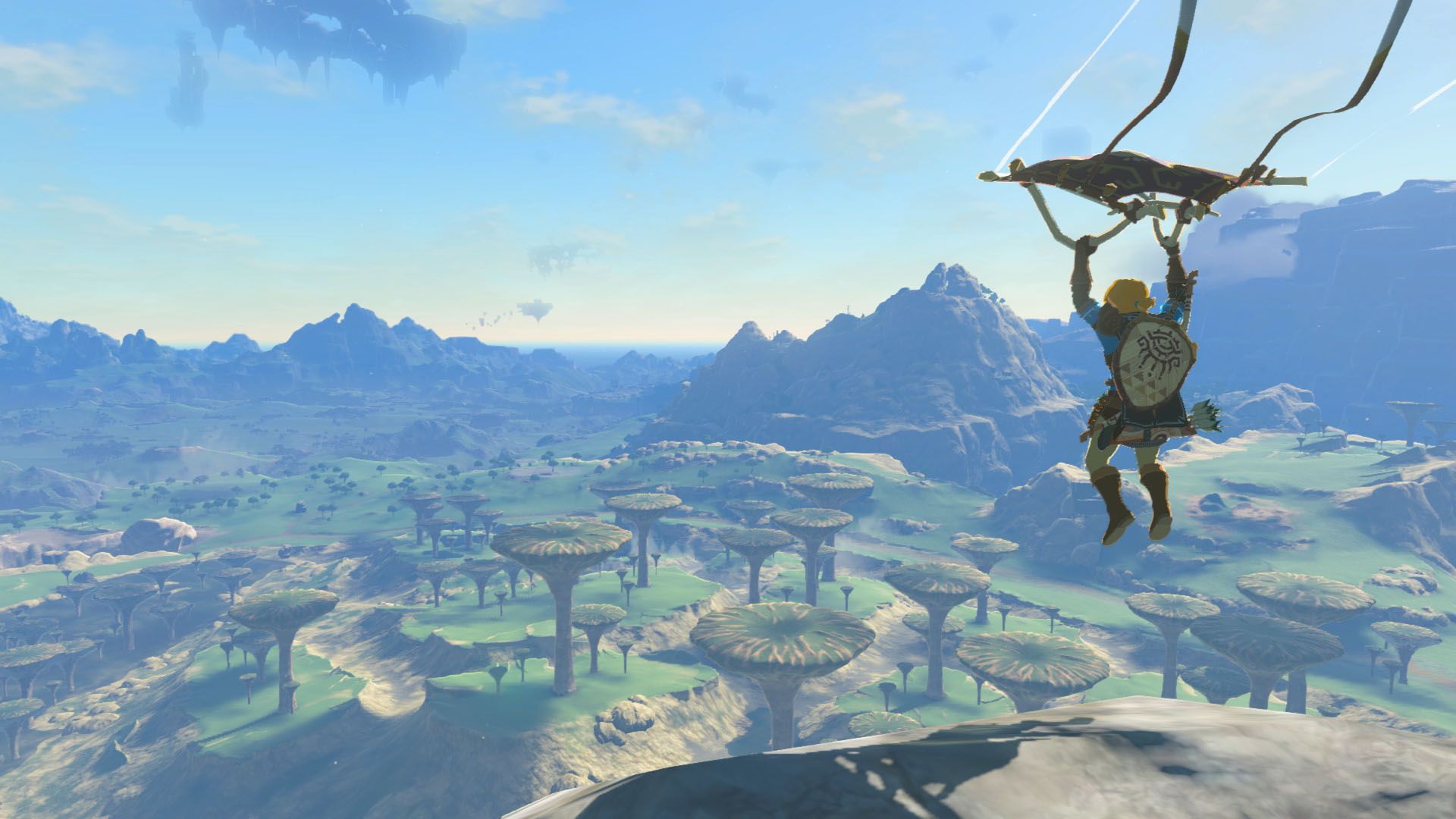ADHD and Open World Video Games
An analysis on the difficulties posed by open world games for folks with ADHD

I have a problem. For a long span of my life, I have had a hard time playing any and all open world video games.
I have had too many conversations with others on open world games, with people wondering why I haven’t completed the game or why I’m not continuing to play it. It usually ends with a, “I’ll get around to it, I guess.” Which never actually happens.
A couple of years ago I was diagnosed with ADHD, a diagnosis which I honestly attributed more to people who can’t sit straight than a person who would prefer to be laying down and watching YouTube. Despite that, I have learned over time how I tick, which extends to how I consume video games.
Here is my personal perspective on different open world video games and how I approach them.
Defining Open World Games
Before digging into different open world games and my experiences with them, it’s good to identify what open world games mean. There is a good deal of discourse about the genre and whether different games belong in said genre. That is not my intention with this piece.
For me, an open world game is any game that forgoes a level structure and plops the player in the middle of an environment where they must find their own path to get from one objective to another. This may come across as vague, but it helps to cover all kinds of genres of play. For example, I would identify Hollow Knight as an open world game and Call of Duty games as not.
Assassin’s Creed Odyssey: Choice Paralysis
Being saddled with a long list of chores is the last thing that a person with ADHD wants to see. “Which of these do I want to do first?” is a question that often goes through my head when presented with a long static list of ‘to-dos.’
I perform better on a task when I have some direction. I call this Choice paralysis and it’s a condition that makes it hard to decide when presented with too much information.
The Assassin’s Creed series loves to pile entries via a to-do list on the player. The mini-map is constantly littered with an overwhelming amount of collectibles, side missions, and the overall bloat of activities that makes continuing the story itself paralyzing.
A peculiar trick pulled by specifically Assassin’s Creed Odyssey is to have your next objective several in-game minutes away with an enormous amount of “distractions” in the way.
The biggest turnoff in an open world game is the concept of “towers”, where the player must climb to the top of some waypoint (usually taller than the other buildings and pieces in the area) to unlock more to-do list activities, leading to further indecisiveness.
To be honest, I know from the outset I’m going to bounce off of a game if I see any of these towers. I know towers are an early indicator that I’m about to be overwhelmed with content sooner rather than later.

Grand Theft Auto V: Driving in a Rut
We can say that open world games are an example of a game that is a “jack of all trades and master of none.” There’s a bit of shooting, a bit of driving, and a few other distractions, but they rarely come across as well-designed or interesting. When asked to give an example of the genre, many players will immediately go to naming Grand Theft Auto or any of its clones.
Grand Theft Auto V (and its multiplayer component GTA Online) fall into the category of “a little something for everyone.” There is some kind of activity for every mood, but all of it feels standard. It’s designed for a few minutes of fun, but not an activity that will stick out and stay with the player afterward.
Even the mission structure is rote. Drive to place, shoot people, maybe take part in a scripted spectacle, rinse and repeat. Even the touted “Heist” missions are formulaic and missing something to elevate it from feeling like a scripted sequence of mechanics such as the break-in section, the loot gathering section, or the massive firefight on city streets section.
GTA V had me recalling Bungie’s comments on the design principle for the Halo series.
“In Halo 1, there was maybe 30 seconds of fun that happened over and over and over and over again. …if you can get 30 seconds of fun, you can pretty much stretch that out to be an entire game.”
To a certain extent, a scripted, linear game will follow this advice: nail down a core loop that keeps players coming back because that loop is that good. Halo is a 10-hour game that ends as it loses its welcome, whereas GTA V can last up to 31 hours (not including the side content). At that length, it can feel like GTA has landed itself in a rut.
The reason that Grand Theft Auto V fails compared to games like Yakuza is because of this lack of polish. If I’m in the mood to shoot things, I’ll play Doom. If I’m in a driving mood, any number of racing games feel miles better. I can envision a player who would be drawn in by so many activities to do, but I find myself uninterested quickly and the thought of going back to GTA is difficult to wrap my head around.

Breath of the Wild: Slow March Toward Progression
One of the driving forces in roleplaying games is the quest to get stronger. A player typically starts at a low level dealing next to no damage to enemies and through some mechanic (such as experience points), will gradually get stronger as the game rolls on.
For an open world RPG to be successful, it must use its environment to add to the progression I look for. Quests, collectibles, and side content should always make the player more powerful. To an extent, Breath of the Wild succeeds in subtly making the leveling up experience rewarding. However, it’s just such a slow grind that making any meaningful progress is an exercise in frustration.
There is a joy in exploration that is unmatched in video games and finding a section of a map that is out of the way and filled with treasure or character progression. Nintendo nailed that down with Breath of the Wild. Then your good sword breaks in the middle of a tough encounter and you don’t have a good backup. There’s no choice but to lose progress and try again.
The Legend of Zelda games have always been about a series of dungeons for the player to explore and the way forward is hinted to the player through brilliant and often subtle signposting in the environment. This seems to have been removed in favor of dropping the player in Hyrule and then letting the player “find their own way” to a vaguely defined end goal of defeating Ganon. I found that it’s not very well defined as how the game expects the player to do that.
I don’t do too well when games want me to make my own fun.

Mass Effect: Repetitive Content
The original Mass Effect is a masterclass in the good parts of an RPG: an engaging story with interesting player choice, combat with a near-slavish devotion to digital dice rolls, and all wrapped up in a setting that is tailor-made for a fun Space Opera series. Well, in the main story content, that is.
Outside of the main story hubs, there is little to do. Players can visit many of the worlds on the map, but if there isn’t more story on that planet, there is very little variety in the tasks.
There are two ways a “side” world can go, either (1) scan for materials or (2) fight a big worm. Neither of these are very engaging, but the player will see them a lot to max out their equipment.
It’s frustrating to have to push through so much recycled content to feel like the game isn’t being made actively harder. My brain loses interest quickly.

Deus Ex: Human Revolution: What Makes an Open World Game Work?
Deus Ex is a series of first-person RPGs, all of which have a rudimentary open world. Human Revolution presents players with a couple of cities, two of which are fleshed out open worlds to explore. The side stories that can be found in the hubs are meaty and have weight to them that can’t be found in bigger open world games. The out of the way exploration often results in meaningful rewards and experience points.
Deus Ex: Human Revolution is the entry out of this shortlist with the perfect ADHD open world. In Human Revolution, they covered the world with just the right amount of distractions in a map that is chopped into chunks.
There are side missions that contribute meaningfully to both the story being presented and the player’s progression. The story has enough of a push to keep me invested and has enough meaningful choice to give me stakes in the way the story plays out.
Games like Human Revolution are, from an ADHD perspective, strong and accessible open world games. There needs to be enough direction for the player, but also have enough leeway in how the story unfolds to create stakes to invest in.
Creating a strong open world game is a very fine balance. Too much one way or the other and my attention will move on to something else. My hope is that developers will take to heart these positive qualities and what doesn’t work to create open-world games that all can enjoy.
